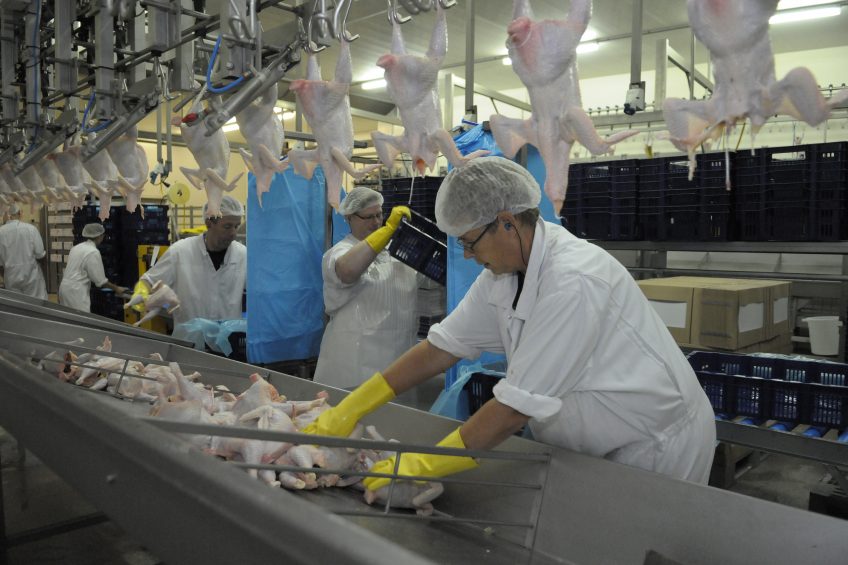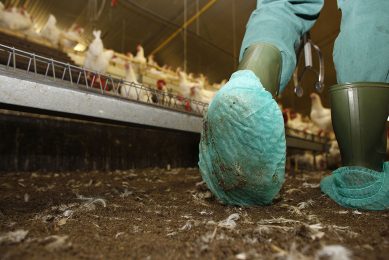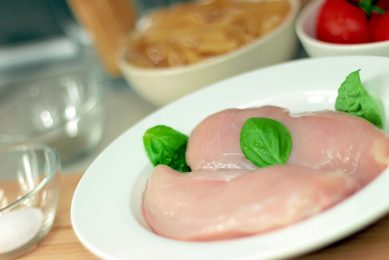UK poultry: New Bill labels ‘key food workers’ low skilled

Fears are growing that the UK poultry industry could be decimated after it emerged that the Home Office’s Immigration and Social Security Co-ordination Bill has labelled key food workers as “low skilled”.
60% of Britain’s food workers in the poultry sector are EU migrants and many have made extraordinary sacrifices during the Covid-19 pandemic to keep the nation fed.
This Bill is likely to have a crippling effect on British food production and national food security.” – Richard Griffiths, BPC chief executive.
Ending moving of people between UK and EU
The Bill has passed its first vote in the House of Commons, and if it receives Royal Assent, would establish the legal framework to end the free movement of people between the UK and European Union. This would mean a points-based entry system for individuals who earned above a minimum salary of £25,600 and who were considered to be “highly skilled”. The policy proposed to end all routes to permanent residence in the UK for workers seen to be of “lower skill” from 1 January, 2021.
Cripple British food production
Richard Griffiths, British Poultry Council chief executive, said: “Government must recognise that the food on the nation’s dinner tables under lockdown is being produced in large part by the people who their proposed policy will alienate. “This Bill is likely to have a crippling effect on British food production and national food security. The UK cannot afford to lose its unsung heroes who muck in, face the challenges, and risk their lives to feed this country.”
Losing control of how we feed ourselves as a nation would undermine British food producers at a time when we should be taking matters of food security into our own hands.”
Losing control of how we feed ourselves as a nation would undermine British food producers at a time when we should be taking matters of food security into our own hands.” – Richard Griffiths, BPC
UK poultry sector has 30% staff turnover
Just under 23,000 people are employed in the UK poultry sector and the current estimation of the annual turnover of staff is 30%. Therefore, every year the industry has about 7,000 vacancies that need to be filled with non-UK workers, the BPC argues. Mr Griffiths added that Covid-19 had reinforced the importance of self-belief and dignity that comes wrapped up in food: “The Government must ensure that British food, and the quality it represents, stays affordable and available to all. Losing control of how we feed ourselves as a nation would undermine British food producers at a time when we should be taking matters of food security into our own hands.
Labour availability “critical issue” in new Brexit modelling
The cost of attracting and retaining labour could be the biggest threat to poultry businesses immediately after Britain leaves the European Union, according to new analysis.
“Key workers in food, regardless of where they come from, are an important part of Britain’s cultural fabric and prestige. British food businesses deserve an immigration policy that makes it easier for them to retain access to skills and talent that Britain sorely needs. The current immigration plan is likely to have a crippling impact on food businesses already facing the consequences of the pandemic and make access to quality British food harder for all.” NFU Scotland said it “fundamentally disagrees” with the UK Government’s intention to end free movement after the expiry of the transition period. Andrew McCornick, NFU Scotland president, said: “NFUS has always maintained that workers from outside the UK are highly valued in every sector represented in Scottish agriculture, food and drink.”













